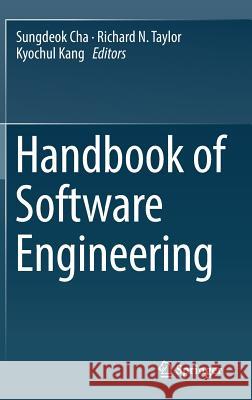Handbook of Software Engineering » książka
topmenu
Handbook of Software Engineering
ISBN-13: 9783030002619 / Angielski / Twarda / 2019 / 524 str.
Kategorie:
Kategorie BISAC:
Wydawca:
Springer
Język:
Angielski
ISBN-13:
9783030002619
Rok wydania:
2019
Wydanie:
2019
Ilość stron:
524
Waga:
0.92 kg
Wymiary:
23.39 x 15.6 x 3.02
Oprawa:
Twarda
Wolumenów:
01
Dodatkowe informacje:
Wydanie ilustrowane











